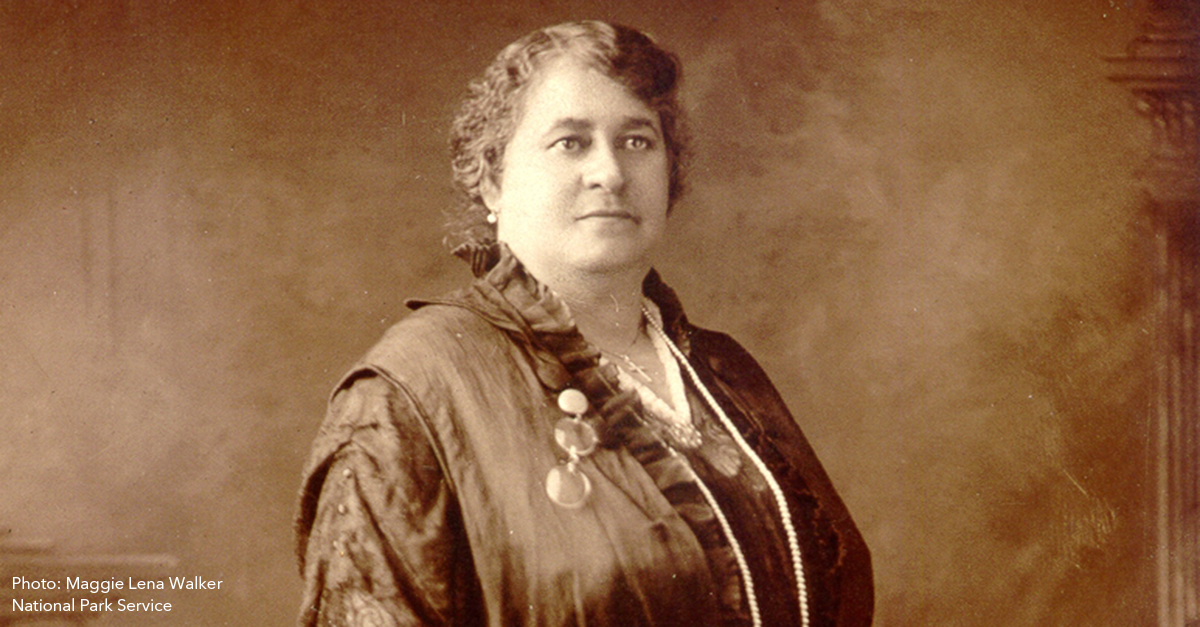
Financial Pioneers: Maggie Lena Walker
In honor of Women’s History Month, we’re highlighting the African-American activist Maggie Lena Walker. She’s known in the financial world as the first female to found and become president of a bank, but Maggie’s accomplishments reached much further than that. And to get there, she overcame a life of discrimination.
Difficulties Growing Up
Born in Virginia in 1864, Maggie’s parents were both former slaves. Her father drowned when she was 12 years old (she believed he was murdered), leaving the family in poverty. To make ends meet, Maggie’s mother became a laundress, and Maggie spent her nights helping her mother make deliveries.
According to Biography.com, “it was during this time that she first developed an awareness of the gap between the quality of life for whites and black in the United States — a gap she would soon devote her life to narrowing.”
The Independent Order of St. Luke
As a teenager, Maggie joined the Independent Order of St. Luke, an organization focused on the social and financial progression of African-Americans. Maggie eventually assumed control of the Independent Order, but it was while the organization was on the brink of bankruptcy. However, under Maggie’s leadership, the Independent Order was revived and actually began growing.
Not long after, Maggie started the St. Luke Herald newspaper to spread news of the Independent Order to its local chapters. That publication served as a communication and education tool to bring members even closer to the organization.
Making Financial History
One of the issues the Independent Order faced was that many banks refused to do business with African-Americans, especially women. Maggie saw this as an opportunity and made a vow to her people: “Let us put our money together; let us use our money; Let us put our money out at usury among ourselves, and reap the benefit ourselves.”
In 1903, she founded the St. Luke Penny Savings Bank, becoming the first woman to charter a bank in the United States. By 1924, the bank served more than 50,000 members in 1,500 local chapters. Even through the Great Depression, Maggie kept the bank afloat by merging with two nearby banks in 1929 to create the Consolidated Bank & Trust Company. Maggie served as the Chairman of the Board of Directors.
Leaving a Legacy
Maggie died in December 1934. Fifty years later, the Independent Order ceased to exist, and the bank closed in 2009. Maggie paved a path of social justice throughout her lifetime. She served among the board of trustees for many organizations, including the National Association of Colored Women and the Virginia Industrial School for Girls. She even started the St. Luke Emporium, a department store that provided work for African-American women and gave the community access to affordable goods.
That kind of female leadership was unheard of in the early 1900s — this was even before women had the right to vote. Maggie experienced prejudice throughout her life, but with her tenacious spirit and business-savvy approach, she impacted the financial industry for years to come.